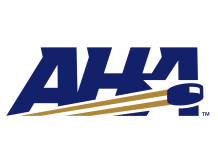This year was supposed to be different. The New Hampshire Wildcats had not only taken every statistical category in Hockey East, they had even more importantly won the big games.
They demolished the West Regional’s eventual No. 1 seed, Denver, back in November. They took five of six points from Boston University. They had broken an oh-for-all-time record against Maine in the postseason while also capturing their first Hockey East crown.

As the Frozen Four’s top seed, they were supposed to reprise their Hockey East title contest’s performance against Maine to reach the NCAA championship game. Then they’d roll the dice and just watch out for the snake-eyes.
One UNH fan even tempted the hockey gods by speculating that the Wildcats would be returning so much talent next year that they posed a significant challenge to Boston University’s record dating back to 1972 of being the last team to win NCAA titles back-to-back.
Instead, New Hampshire played acceptably well during an oft-bizarre first period only to falter in the second and go down in flames in the third. Darren Haydar and Colin Hemingway, who had combined for 142 points this year, were held to a combined total of three shots. Goaltender Michael Ayers, who set a Hockey East record with a .938 save percentage in league games, allowed seven goals, some of them head-shakers.
“We’re disappointed in the way we played today,” said coach Dick Umile. “Obviously, it wasn’t one of our better hockey games, but you’ve got to give credit to Maine.
“I told the team it took nothing away from what they accomplished this year. They’ve been a great team to coach, a special group led by a special player, Darren Haydar.”
It was a sentiment that was echoed by Maine interim head coach Tim Whitehead.
“UNH has had a tremendous season,” he said. “Nothing can take that away from them. When you get to this point in the season, anything can happen. I have tremendous respect for how they play and how they’re coached. They’ve had a wonderful season. It’s a shame that somebody has to lose in these situations.”
A shame indeed. But what hurts the most is that the Wildcats played so poorly just two wins away from a national championship. Large dollops of credit is due an underrated Maine team that played very, very well. But some UNH wounds were self-inflicted.
The Wildcats jumped out to the lead just 21 seconds into the game. Three seconds later, they went on the power play. When given the man advantage, they had capitalized at a rate second to only one team in the country this year.
Given opportunities like this, New Hampshire had frequently blown teams out early. In what would be an omen of things to come, however, Maine held the UNH power play off the scoreboard, a trend they continued through the rest of the contest.
“One of the things we’ve done all season is jump out early and try to get a head start and get a team on its heels,” said Haydar. “But on the power play, we didn’t generate too much.”
In fact, just 13 seconds after the failed man advantage ended, Maine got the equalizer. That tally appeared to be another ominous sign for UNH because unless a Maine player went uncredited with a deflection off his body, Robert Liscak put a very soft backhander from along the boards past Ayers.
A shorthanded goal later in the period, however, gave New Hampshire a 2-1 lead heading into the first intermission. Arguably, the Wildcats were in perfect position. With less NCAA tournament experience and less Frozen Four experience than Maine, they had simply needed to survive the first period to then let their superior overall talent, especially on offense, take charge.
Instead, UNH would never score again. And Maine would score plenty. Ayers did not look sharp on an early second-period goal by Peter Metcalf from the point. Little more than two minutes later, the defenseman scored a near exact duplicate.
“When I scored my first goal, he did look a little shaky,” said Metcalf. “We try to take advantage of that. As soon as a goalie looks shaky, we throw it right at him.
“We did that the next play. I probably couldn’t have broken a pane of glass with the shot, but just got it on net and then good things happen.”
Which is not to cast Ayers as the second-period scapegoat. The entire team played poorly. Maine outattempted the Wildcats, 26-11, and outshot them 18-8. In fact, Ayers appeared to be regaining his form midway through the period.
Trailing only 3-2 going into the third, New Hampshire was still very much in striking range. The Wildcats had owned the final 20 minutes this season, outscoring teams, 70-28.
Umile told the team, “Hey, it’s going to come down to the third period and we’ve been a pretty good third period team.”
Which was true on paper. However, after another Liscak goal at 8:16 made it 4-2, the season slipped away quickly as Maine followed with another three goals in just over eight minutes.
“You couldn’t ever expect to be up by two goals [against] probably the best offensive team in the nation,” said Metcalf. “They were definitely frustrated. They weren’t getting the bounces.
“As soon as a team gets frustrated, they seem to decline. I told the team, ‘Let’s take advantage of this!’ and we did.”
As losses go, it was about as bitter as one could imagine.
“I’ve got to give credit to Maine,” said Umile, who has always been one to give a victor its due. “They did a good job.
“We didn’t handle the puck. We didn’t make good plays. A couple goals that went in were tough goals…. That put us back on our heels.”
For Ayers, it was easily his worst performance of the season since a rocky debut against Rensselaer at the beginning of the year.
“Unfortunately, toward the end it got frustrating,” he said. “When things aren’t bouncing your way, you can’t get frustrated. Looking at it now… it’s not easy to swallow.”
Haydar spoke for the five skaters, who fared no better than Ayers.
“They outworked us and were maybe a little bit smarter,” said Haydar. “We made some poor decisions and they came back to bite us.
“We’re disappointed in our showing. We thought we could have had a better game today.”
The loss was particularly galling because Haydar had sought redemption for UNH’s overtime loss to Maine in the 1999 national championship contest.
“It’s not a great feeling whoever you lose to,” he said. “You don’t like losing.
“[But] it’s something I’ll have to live with now, losing to Maine twice in two big, big games. That gives a lot of credit to Maine and shows what kind of a team they are in the postseason.”
For Umile, though, the loss in 1999 pales in comparison to this one.
“Tonight is definitely more frustrating,” he said. “If you’re going to lose, you want to go out there playing well. In ’99, it was a terrific college hockey game and it was a bounce of the puck [that decided the game]. We had our chances to win it. Tonight, we never had a chance to win it. So that’s very frustrating.
“Getting here is very difficult. There are a lot of teams that would like to be in this position. You want to be able to go out there and play one of your best games, but I feel that we did not play one of our best games. That includes our players and coaches.”
There’s always next year and as the optimistic fan who speculated about back-to-back titles noted, there’ll be a lot of talent coming back. But all that feels far in the distance right now as the Wildcats cope with one very tough loss to swallow.


